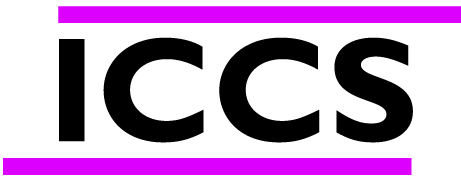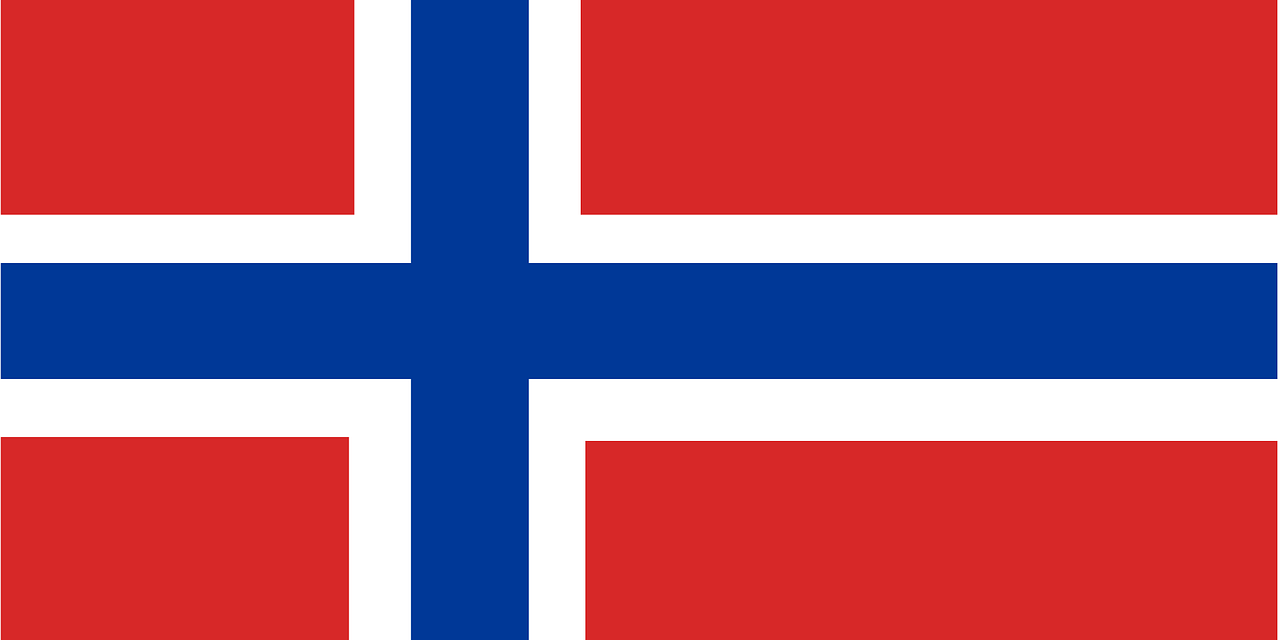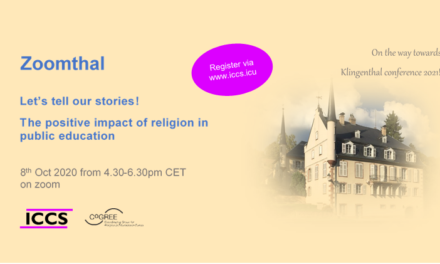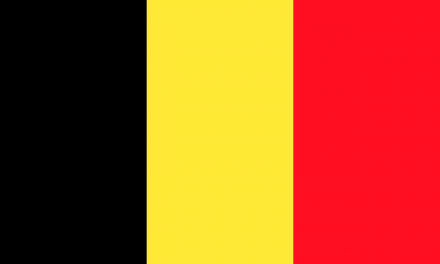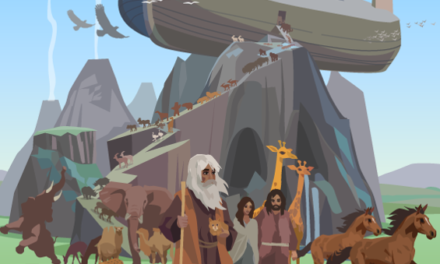New curriculum 2020
Education in primary, lower secondary and upper secondary education (both general and vocational strands) in Norway is undergoing a renewal, which is going to be implemented from the school year 2020/21. The revision of the ‘Knowledge promotion reform 2006’ entails a new core curriculum stating values and principles for primary and secondary education, new subject curricula and changes in the curriculum structure. The revision’s goal is to enhance cohesion and progress through all 13 years of education leading up to university level. The focus has been on defining the competences to be achieved in a way, which facilitates in-depth learning.[1]
Interdisciplinary topics and basic skills
Three new interdisciplinary topics – public health and life skills, democracy and citizenship, and sustainable development – are introduced. They will be taught and learned across all school subjects. There is also an increased emphasis on critical thinking and reflection. The learning within the five basic skills originally introduced during the ‘Knowledge promotion reform 2006’ stay in place: reading, writing, numeracy, oral skills and digital skills. “These skills are part of the competences in the subjects and necessary tools for learning and understanding them” according to the core curriculum.[2]
RE – instrument for formal education?
All aims mentioned above are stated out of good intentions. Educators with specific interest for Religious Education, however, have to ask whether RE easily develops into an instrument for all other purposes rather than its own. Will there be space for knowledge on religions and worldviews per se?
The new curriculum of KRLE2020 (Knowledge of Christianity, Religion, Philosophies of life and Ethics from 2020) has undergone a revision of the former reform in 2006 (with minor change in 2015) in a way that results in a nearly new school subject. The new subject disrupts a period of ten years of peace and consensus around KRLE, after a turbulent period when the multireligious, common subject for all pupils was introduced in 1997, and the subject had developed through several stages.[3] The renewal is highly disputed by scholars, teachers and parents during the extensive hearing process on the curriculum and now in the implementation process. A large number of parents and teachers have raised their voices.
The new curriculum for primary and lower secondary education states general competences: methods to study religions and worldviews, methods for studying existential questions and answers, ability to take the perspective of the other, ethical reflection, critical thinking, resource criticism, criticism of norm and power relations, and philosophical thinking. General competences like these are described nearly without pointing out core content, basic knowledge and knowledge areas. [4] Religions are named in an introductory sentence: “The curriculum in KRLE facilitates introducing Christianity, Judaism, Buddhism, Hinduism, Sikhism, new religious movements, and secular humanism both separately and relationally (my translation).” Throughout the rest of the curriculum covering six pages the specific religious traditions disappear and are not mentioned by name anymore in the competence aims, except for references to Christianity. References to Christianity serve to fulfill the political demand to allocate approximately half of the time used in the subject to Christianity. Other religions’ names are substituted by ‘Christianity and other religious traditions’, and ‘eastern and western religious traditions’.
Content missing
In total, 580 hours (60 minutes each) are allocated to the KRLE curriculum spread over 10 grades. The number of competence aims after year level 4, 7 and 10 is 41 in total. This small amount indicates that the competence aims are kept rather general. Many keywords normally present in RE curricula are missing completely, for instance: God, holy, ritual, sacrament, temple, synagogue, Abraham, Moses, Jesus, Muhammed, Buddha, scriptures, Torah, Quran, Bible, meaning seeking, congregation, umma, creeds, rules, commandments, creation, life rites, worship, prayer, meditation, guilt, and salvation. The aims mainly state general formal competences without relating them to content or subject specific structures of RE.[5] Religion is presented as a social, constantly changing and diverse concept and phenomenon. The subject is cognitively biased, especially for pupils in primary education. Religion is supposed to be learned by its general features, rather than as specific entities. Those sceptic towards the KRLE2020 curriculum fear for the subject as a whole. The curriculum’s format makes it open to misuse. Religious education can be turned into democracy and citizenship education or education in individual ethical reflection, philosophical and critical thinking as these are subject independent skills.
Alternative reading: RE as part of Bildung
Many teacher educators, teachers, and textbook authors enjoy the freedom the curriculum gives to define and develop different styles of RE subjects in different contexts. To change an established understanding of the structure and aim of a school subject is not done overnight, it is part of a collective memory and will show in theory, attitudes and educational practice. The established understanding is to provide pupils with sufficient basic knowledge on religions to understand their classmates, media, society and the global world. An understanding of KRLE as part of Bildung in Norwegian schools has strong support in the main objectives of the Educational Act where school is to promote certain attitudes and values:
Education and training must be based on fundamental values in Christian and humanist heritage and traditions, such as respect for human dignity and nature, on intellectual freedom, charity, forgiveness, equality and solidarity, values that also appear in different religions and beliefs and are rooted in human rights.
Education and training must help increase the knowledge and understanding of the national cultural heritage and our common international cultural traditions.
Education and training must provide insight into cultural diversity and show respect for the individual’s convictions. They are to promote democracy, equality and scientific thinking. (Parts of Educational Act § 1-1)[6]
The Core curriculum elaborates on these values in detail, which are to be implemented in all subject curricula.[7] Thus, the openness of KRLE2020 can be used by teacher educators and teachers by creating a more content specific and value based local KRLE to fulfill the Educational Act and the Core curriculum. Both documents have legal status above the subject curricula as they express official educational policy of the Norwegian state.
text by Heid Leganger-Krogstad, ICCS board member
Prof. em. MF – Norwegian School of Theology, Religion and Society, Oslo, Norway
[1] https://www.udir.no/laring-og-trivsel/dybdelaring/ (in Norwegian).
[2] https://www.udir.no/lk20/overordnet-del/prinsipper-for-laring-utvikling-og-danning/grunnleggende-ferdigheter/?lang=eng
[3] More on Religious Education in compulsory education in Norway, background and development. Leganger-Krogstad, Heid. (2011). The Religious Dimension of Intercultural Education : Contributions to a Contextual Understanding. Münster: LIT-Verlag. p. 89-97.
[4] The new curriculum KRLE 2020 https://data.udir.no/kl06/v201906/laereplaner-lk20/RLE01-03.pdf is so far not translated to English.
The former curriculum KRLE 2015 is made available by The Norwegian Directorate for Education and Training in English: https://www.udir.no/kl06/RLE1-02?lplang=http://data.udir.no/kl06/eng
[5] Klafki is used to analyse the relation between content and form. Fuglseth, Kåre. (2018). Kategorial danning og bruk av IKT i undervisning Retrieved from https://www.idunn.no/kategorial-danning-og-bruk-av-ikt-i-undervisning
[6] https://lovdata.no/dokument/NLE/lov/1998-07-17-61
[7] Core curriculum – English translation https://www.regjeringen.no/en/dokumenter/verdier-og-prinsipper-forgrunnopplaringen—overordnet-del-av-lareplanverket/id2570003/
